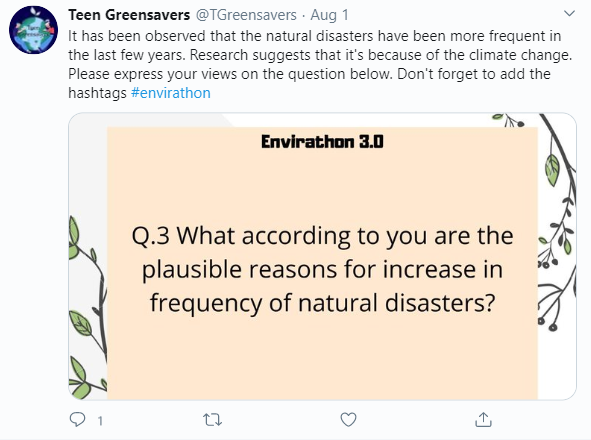Updated: Dec 22, 2020
No challenge poses a greater threat to future generation
Introduction
It shames us to say that climate change has hit us in the worst possible way, and here we are doing almost nothing. This is not something you can just like on social media. The one thing that has to be bigger than Climate Change should be our movement to stop it.
A few weeks back, we got this opportunity by Sumedha ma’am, our mentor, to express our thoughts and ideas to the world. She prompted us to participate in the Climate Change event, over an expanse of 6 weeks.
A Brief Synopsis of the Video
The world is at its last straw, one side is burning while the other side is being submerged.
Effects of climate change have been drastic over the past few years. Here is a short video highlighting the impacts of our actions over the last few years.
Topics covered:
In 2011 a tsunami engulfed Japan’s north-east coast. More than 18,000 people were killed. Six years later, in one community, survivors are still tormented by a catastrophic tragedy.
Recurring accidents are no accidents. Over two million acres of land have been burned in California, compared to 118,000 acres burned during this time in 2019. So, when does this recurring end? When the lesson is learnt!
And all of us are aware of the Australian bushfires or colloquially known as the Black Summer. As of 9 March 2020, the fires burnt an estimated 18.6 million destroyed over 5,900 buildings and killed at least 34 people.
Conscience
We spent hours exploring various issues and consequences of Climate Change. Around 1000 videos popped on our screen regarding the news of accidents caused by our exploiting behaviour. The rising level of water, forest fires and what not? It affected our conscience and motivated us to make a video highlighting Climate Change effects.We knew the problem, but implementing the solutions is what will make a difference. The project assigned to us made us explore the solutions. It made us realise, it doesn’t need to be big. Small steps today, by everyone, will be enough.
He who plants a tree, plants HOPE. We, as Teengreensvers, planted trees on the environment day and promoted afforestation. It is not much, but we have to start somewhere.
Personal Experience of the Videographer
There is no end to education. I have learnt an enormous amount of things from the Climate action project. It was a very adventurous journey with the team finding the root causes, effects and Solutions for climate change and it really opened my eyes to see how adverse Climate change actually is. I realised that the future of earth lies in our hands and we all need to be aware of such global level issues and we should learn and create awareness about it. It was a great experience and truly enriched my knowledge about the issue
Video by: Sahitya kataria & Nakul Anand










